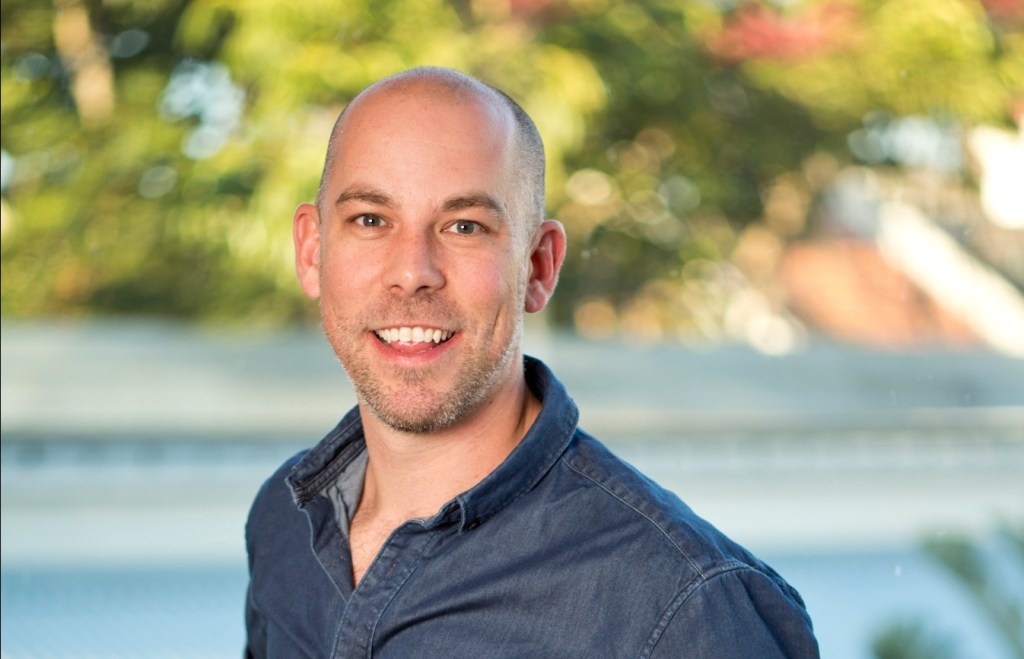A steady pace of funding for quality companies, venture credit, and merger and acquisition activity could be on the cards, some of the top funds tell Forbes Australia.
AirTree partner James Cameron thinks 2023 will remain difficult for many startups, especially later stage companies that are burning too much cash.
“We made 27 investments this year, injecting $199 million into our region’s startup ecosystem. This included investments in Buildkite, Linktree, Eucalyptus, FairSupply, Zepto and Human, Australia’s largest seed round for a female-founded team.

“We’ve backed some of our region’s most ambitious founders as they set out to tackle some of the world’s most pressing problems – from personalised healthcare for patients with chronic illness, to software that helps eliminate modern slavery risks and carbon emissions, to creating the tools that are used to build the biggest software companies in the world.
“We’ve also intentionally backed more early-stage companies, with 79% of new investments this year being seed or pre-seed, up from 55% in 2021. And despite tougher economic conditions, we’ve been meeting more founders and companies than ever before reaffirming our belief that entrepreneurship is still at an all-time high in Australia.
Unicorns per US$billion of VC investment
“Although there’s been a general decline in VC investment from last year, VC funding for the year is still significantly above investments made in 2020.”
What 2023 might bring and what trends could be in the pipeline over the next 12 months
“2023 will likely remain difficult for many startups, especially later stage companies who are burning too much cash. But the economic backdrop also presents a unique window of opportunity for founders who can move quickly and focus on capital-efficient growth.
“Australian startups tend to be well suited to this environment. Australia is one of the most capital efficient producers of unicorns in the world, and our companies have a history of doing more with less. In tough markets this capital efficiency gives them a real competitive edge. This is what gets us so excited about investing in our market at the moment.
“Recruiting has already become way easier, consolidation will see competition reduce and the constraints felt by businesses will breed creativity. For those with real business models and a nose for opportunity – 2023 could be a breakout year.”
Rick Baker, co-founder at Blackbird says 2022 has been a year of resetting and building resilience. He’s excited about the wide range of ideas being funded and says there’s likely to be more wild ideas in 2023.
“After the manic year of 2021, this year has been one of resetting and building resilience. Almost every one of our 101 portfolio companies has had to refresh plans in light of changed market conditions. We’ve seen the resourcefulness of founders shine as they have worked to focus on core activities, extend runways, raise new rounds and often make tough decisions.

“It’s been a rewarding year at Blackbird as we raised our new funds, which will inject $1 billion of new capital into the Aussie and Kiwi startup ecosystems. We’ve already started deploying these funds and have invested into 21 companies so far.
Blackbird launches $1 billion VC fund
“At Blackbird we believe in not getting too happy in the good times and not too sad during the bad. We’ve invested consistently every year for the past decade and this year was no different. Deal flow has been strong. We invested in 39 companies this year, 22 new companies like Darwinium and Checkmate and 17 investments into follow-on funding for existing portfolio companies like Morse Micro, SunDrive and Vexev.
“The range of these companies – from micro-scale computer chips to cybersecurity to ecommerce to solar cells – demonstrates the new creative nation that is growing in our startup ecosystems.
“Despite the ups and downs of this year, there are still more Aussies and Kiwis solving ambitious problems than ever before. In 2023, we’ll continue finding and backing these companies from the very beginning and investing broadly across all sectors.
“I’m excited about the wide range of ideas we’re now funding – when we started Blackbird in 2012, we could never have imagined we’d be investing in rockets, human cell 3D printers, and synthetic biology, but next year I’m sure there will be even more wild ideas on the horizon.”
Dr Michelle Deaker is the founder and Managing Partner of OneVentures, one of Australia’s largest VC firms. The business has almost $800 million in assets under management and has a focus to support women across all parts of the firm and the venture capital investing landscape.
Froth and bubble to normalise for venture capital startup investing
“When you think about how investors are investing, I think there’s a couple of things that are happening. First of all, we’re sort of keeping capital back to fund our own companies because there could be some capital scarcity, because of the high valuations that happened in 2022. Companies have taken capital at higher valuations than they normally would have. That means they’ve got to grow their businesses to sort of counterbalance that and they need capital to get there. So we’re seeing quite a lot of bridge rounds.

“We have a venture credit product. We’ve seen increased demand for that because people are using it to extend their capital runways. And we’ve just brought a new fund to market right now. That is really to play into that trend that we’re seeing where investors are wanting to extend the runway as well as putting in maybe some bridge capital. They’re looking for venture credit to help drive their businesses to the next value milestones before they go back out to raise again. Venture credit in the US is generally somewhere around 15% of the market for overall venture financing. In Australia, it’s about 2%.
“I think the change in sectors and industries will be an interesting development over 2023. When markets go into decline, and there isn’t capital free flowing, the best performing companies still managed to attract capital and really move ahead and out of every downturn, you actually see the next generation of quality companies come through, so there’ll be a flight to quality for investors. They will be really looking to invest in the next high-quality opportunity that’s coming through. And those businesses will continue to get funded. And then probably what we’ll also see is some M&A (merger and acquisition) activity happen.
“Companies that do manage to get funding will start looking to acquire new products or new geographies to expand their footprint and a lot of the smaller companies that may be struggling to get funding will come to market and decide to sell their businesses.”
Lucy Tan, principal at Square Peg says 2022 has been a tumultuous year for founders having experienced the tail-end of the bull market at the start of the year only to see public markets for tech stocks crash suddenly and steeply.

“But how the markets behave are outside of a single individual’s control so it’s more helpful to take away two key points from the year:
- Australian VCs have plenty of funding to deploy on new start-ups in the next couple of years. We raised $860m for our new fund, Blackbird raised $1b and AirTree raised $700m. None of us will be sitting on the sidelines, waiting for the markets to recover. We’ll all be out there looking for exceptional founders to back.
- Refocusing on building solid foundations for a business will allow founders to emerge from the other side in a position of strength. For early-stage companies, a focus on unit economics and rapid and sustainable growth from the beginning will help avoid trying to reverse engineer a good business down the line. For growth stage companies, markets like this present opportunities for market leaders to acquire or aggressively take market share from weaker competitors and also to bring amazing talent into the business. Paul Bassat, co-founder and partner at Square Peg and previously the founder of SEEK, observed in one of our internal meetings about his experience building through the dot com crash “focus on long term value creation, even if the market doesn’t recognise it in the short term. Great companies can achieve remarkable value creation during difficult times and a long-term mindset during a downturn can set the business up for a long period of sustained growth.”
Tan says that “looking ahead to 2023, we are excited about the following thematic areas”:
Healthtech – ballooning healthcare costs necessitate new solutions from using AI to drive efficiency and accuracy (Aidoc – AI for radiologists) to preventative/proactive health solutions (Mindset Health – hypnotherapy for IBS)
Edtech/future of work – another area where costs have increased dramatically but existing institutions have not been able to keep up in closing key skills gaps (Saasguru – closing the cloud skills gap)
Fintech – some areas of fintech are obviously challenged in the current high interest rate environment but we continue to be excited by infrastructure style businesses that break down more of the banking value chain and make them accessible to all companies (Airwallex – cross-border payments) or introduce more automation to the CFO tech stack (Plooto – automation of accounts payable and receivable)
Climatetech – major challenges exist to meet emission targets in the next 10 years, from maintaining and upgrading grid infrastructure ( Neara – digital twin for utility infrastructure) to changing the means of production (Vow – lab-grown meats)
AI – the generative AI capabilities coming out are mind-blowing but now comes the exciting part of applying these capabilities to real-world problems (Jasper – copywriting, GitHub co-pilot – coding)
Founders also have a point of view about what to expect in 2023:
Ben Lipschitz, CEO and co-founder of FoodByUs
“2023 will challenge startups to be more conservative in how they deploy capital and more aggressive in their growth plans. The message from the investment community is clear: profitability is king. At the same time the job market has opened up much more compared to previous years, meaning there is an opportunity to pick up some fantastic talent. For companies that have a strong culture and are mission-focused, 2023 presents a challenge to maintain that strong culture while at the same time a great opportunity to galvanise the team to push hard.”
Shannon Hautot, co-CEO and co-founder of HUNGRYHUNGRY
“Hype over substance was fun in 2021, and much like a 21st birthday party, the hangover of 2022 has hurt a lot of companies. 2023 will be the year of repairing the house after the party goers have all left. Many companies are over leveraged, or worse, have taken money at sky-high valuations, even urged by their VC’s and investors to take more money at a higher valuation than they wanted. Now they have the headache of ‘growing into their valuations’ – which is code for they’re not worth anywhere near as much as they last raised at, which will have a flow on effect to several areas like staff options and shareholder returns.
“I think we will also see more rollups and consolidation across all industries, especially in tech given many tech startups have been ‘burning’ cash instead of making profits. As cash burning startups start to run out of money they’ll be faced with some tough choices in order to try and survive. Private equity firms will be watching closely and it’s likely we will see them making a play to combine businesses with synergy and implement big changes to move them towards profitability.
“Getting to profit is harder and longer than you think. As a high growth tech startup you want to leverage your momentum and continue to evolve, innovate, and build out new products. Growth is good, but not ‘growth at all costs’’. From our time spent in the UK at the end of 2021/early 2022 we could see the warning signs that a tech ‘correction’ and challenging economic conditions were coming to Australia. We adopted a new mantra – ‘Growth At a Reasonable Price (GARP)’. GARP leads you to run the business in a smart, sustainable way and not jump at every opportunity. It’s a belief that I think just about every tech company in the world needs to switch to. We’ve seen too many tech businesses this year lay-off staff or go out of business entirely. Deliveroo’s withdrawal from Australia is one key example of a failure that has impacted across the entire hospitality industry, putting many more jobs at risk than their own.
“Cross-functional teams are valuable, especially when you’re an early-stage tech startup and still working out your product market fit. In early 2022, we switched from a silo structure to cross-functional teams. We were able to implement this change without a restructure, and our business flow has significantly improved.
“As a business owner don’t be shy of seeking out advice from other business owners that have achieved success and/or are still in the game making it happen. Business owners are under incredible stress and pressure, more than they usually let their family, friends and staff know about, and now more than ever before is the time to make those connections, have a chat and get the help you need to achieve your own success.”
Rohan McDougall, co-founder of West Tech Fest and Director, Commercialisation at Curtin University, says decarbonisation was a major theme that came out of discussions this year.
“We’ve always tried to have some elements of what the next trends might be in technology and investment. Web3 was a theme that was coming through and [venture capitalist and another West Tech Fest co-founder] Bill Tai talked about filtering out some of the noise in that sector to better identify some of the quality opportunities that are going to come through.
“Decarbonisation and what are the opportunities from the transition to net zero from a business sense was another theme this year.
“Critical minerals for battery production and rare earths and solar technology and wind; solutions that might reduce CO2 emissions that require minerals. WA has a lot of those minerals and expertise in processing those minerals so finding ways to sustainably process some of those resources is a significant opportunity for Western Australia from a business perspective, but also in the contribution that WA might make in the transition to net zero.
“Processing of metals and moving toward value-added-products like cathodes and automation to reduce the cost of labour with technology were other ideas that were coming through.”
Further reading
Plenty of ‘dry powder’ for strong businesses in 2023, say VC players
The changing face of angel investors
This article represents the views only of the interviewees and should not be regarded as the provision of advice of any nature from Forbes Australia. The article is intended to provide general information only and does not take into account your individual objectives, financial situation or needs. Past performance is not necessarily indicative of future performance. You should seek independent financial and tax advice before making any decision based on this information, the views or information expressed in this article.